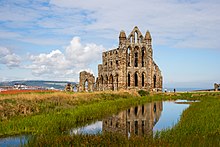Division among the three Abrahamic beliefs has riddled much of European and Asian history. Alongside this divisions are the necessarily parochial but still huge divides within each belief.
Western Christians may be aware of the Sunni and Shia systems of Islam and of the debates between the Orthodox and the Reform Jew; others may not recall Christianity’s own divisions, most notably the Orthodox and the Catholic, and within western Christianity the Catholic and the Protestant.
A peculiar example of Protestantism is the Anglican Church, or Episcopalian in the US. It is peculiar because the church has spent its existence protesting against the anti-protestant papal establishment, protesting against the ultra-protestant nonconforming disestablishment, and all the time pressing for the maintenance of its own established head the monarch of Great Britain.
Samuel Wesley, the English Mozart, was the son of Charles and the nephew of John, two Anglican priests who worked to found a nonconforming Methodism. When Samuel took a step in the opposite direction and converted to Catholicism, his father took time off from writing “Hark! The Herald Angels Sing” and “Love Divine, All Loves Excelling” to pen:
While ready and resolved is he to plunge into the dark abyss
And cast his soul away
That poison of the Romish sect
O let not his soul infect
Samuel died on 11 October 1837. At this time, Oxbridge was still subject to the idea of the Test Acts; neither nonconformist nor Catholic could take a degree or hold office.
Antipodean Sydney is the only world city founded in the age of enlightenment. When its university was established by a local Act of 1850 and while it had its share of sectarianism, the Act’s section 20 did what would only happen for Oxbridge with the UK’s Universities Tests Act 1871, providing:
That no religious test shall be administered to any person in order to entitle him to be admitted as a Student of the said University or to hold any office therein or to partake of any advantage or privilege thereof.
The university was inaugurated on 11 October 1852.
History is fickle, and well before Anglicanism weaponised itself against Catholicism and in particular Irish Catholicism, Irish Christians were having their own stoush with Rome.
We must remember that insular Christianity, the Christianity of the British Isles, predated formal Roman missions and predated many major western Christian events including the First Council of Nicaea, the meeting which provided the foundation of the Nicene Creed and which mandated universal observance of the date of Easter.
It was only at the Synod of Whitby in 664 that the Northumbrian King Oswiu ruled, probably against his own prior practice, that his kingdom would meet Easter according to Rome and not to the custom of Iona, the headquarters of the Irish monks who were set on bringing Celtic Christianity from Ireland into Scotland, a headquarters founded by Columba, venerated in the Catholic, the Anglican and the Scottish Presbyterian traditions.
History is narrative. The prevailing narrative of Ireland, a narrative which is consistent with larger narratives constructed in Rome and in London, is that the Celtic church was not in fact a church and that Whitby was part merely of a long process of realignment and that the Celts themselves are resistant remnants of an inevitable progress of integration with the Roman, the Anglo-Saxon, the Norman, and more recently the Anglican.
Beneath this, there is a compelling alternative narrative, the symbol of an insular, Celtic and Christian Ireland which is more than Yeats’ tragic beauty, perhaps not an origo but at least a fons of western European civilisation. Such a narrative matters to many in Ireland both south and north and it is supremely ironic in our secular age that one of Europe’s most pressing issues is the consequence that the border between the the complements of the north and the south of insular Ireland is in social fact if not geographical truth the border between an insular United Kingdom and a continental Europe.
11 October is the feast day of St Agilbert, later Bishop of Paris, who led the pro-Roman party at Whitby. It is also the feast day of James the Deacon, also present at Whitby and probably on the Roman side. At least, it is his feast day in the Anglican church; the Catholics prefer 17 August. None of which probably mattered to Oliver Cromwell, who infamously sacked the southern Irish town of Wexford on 11 October 1649.
